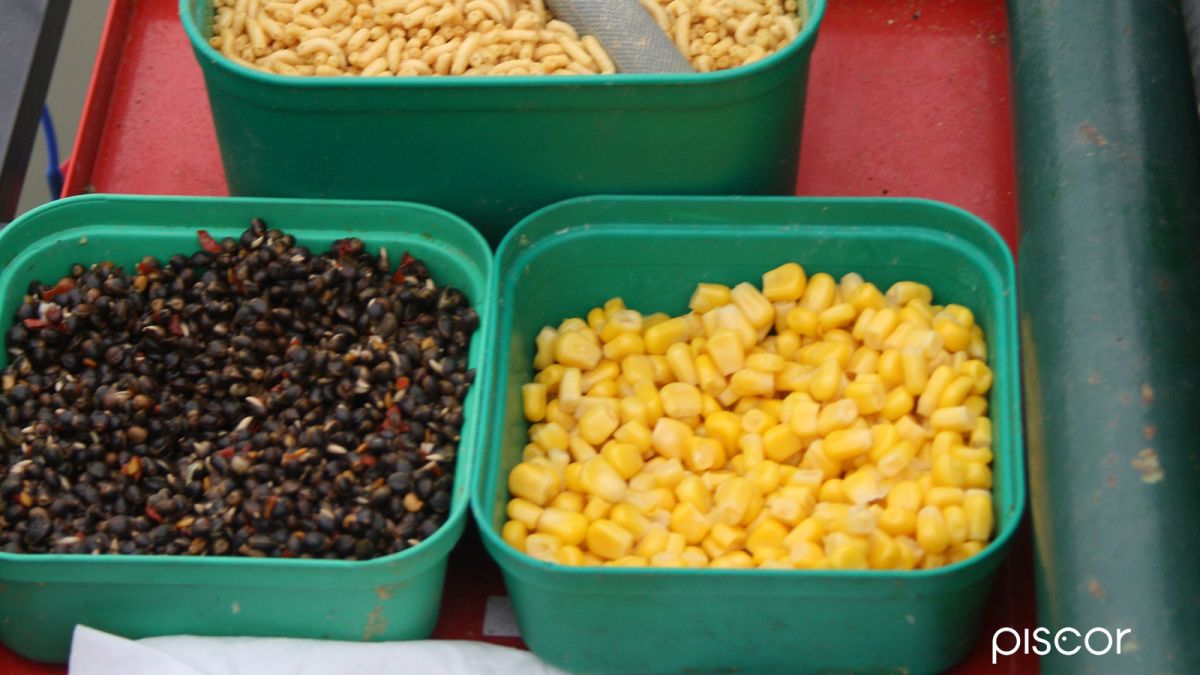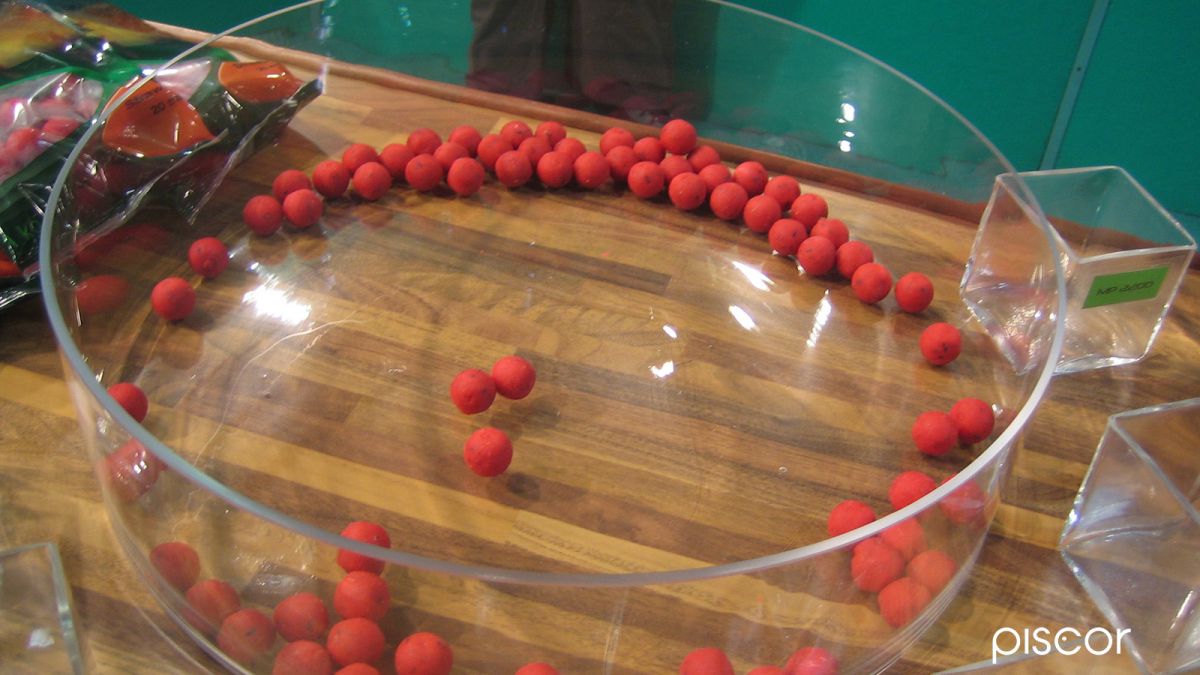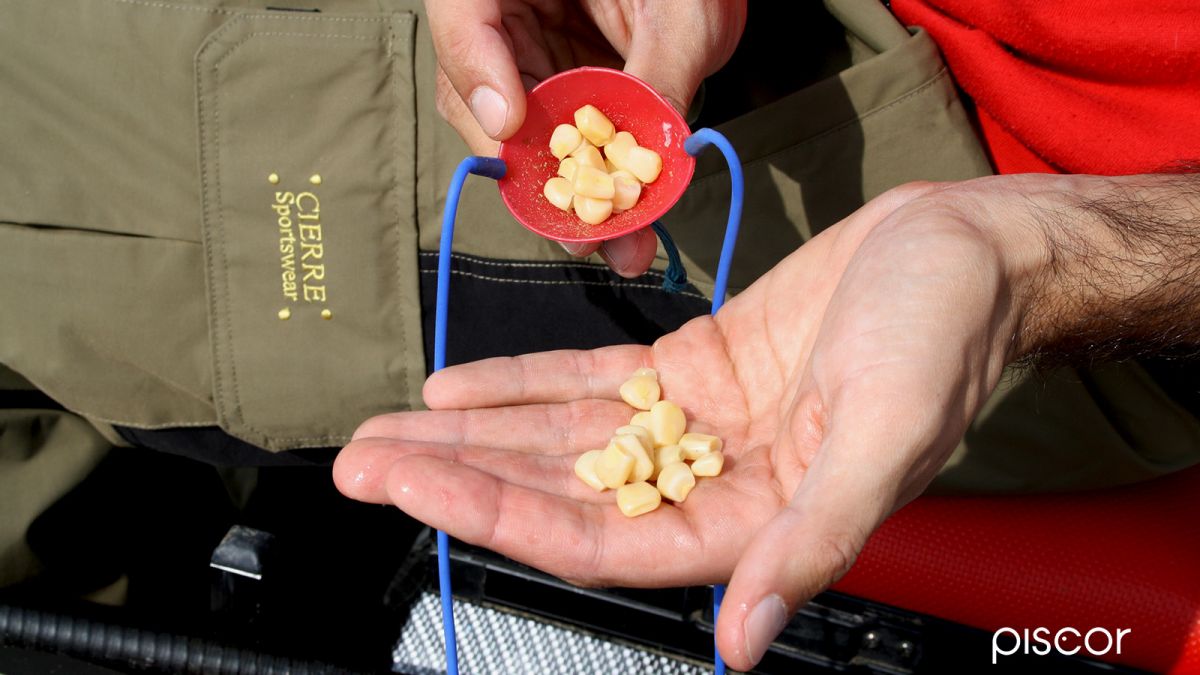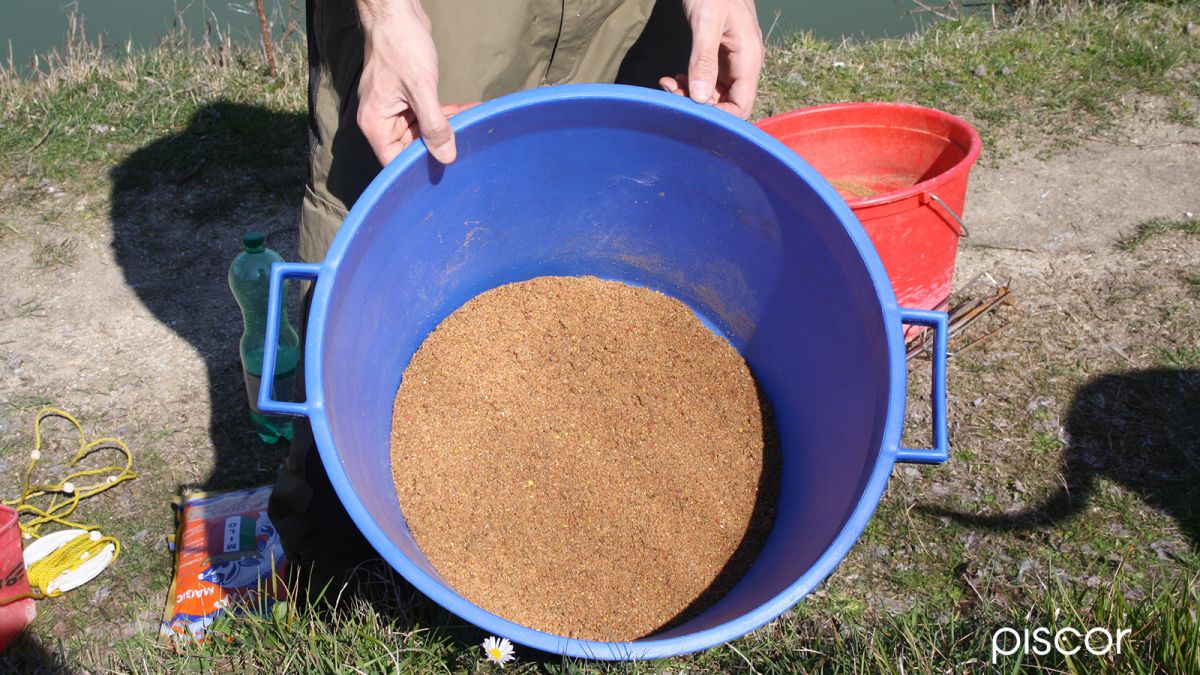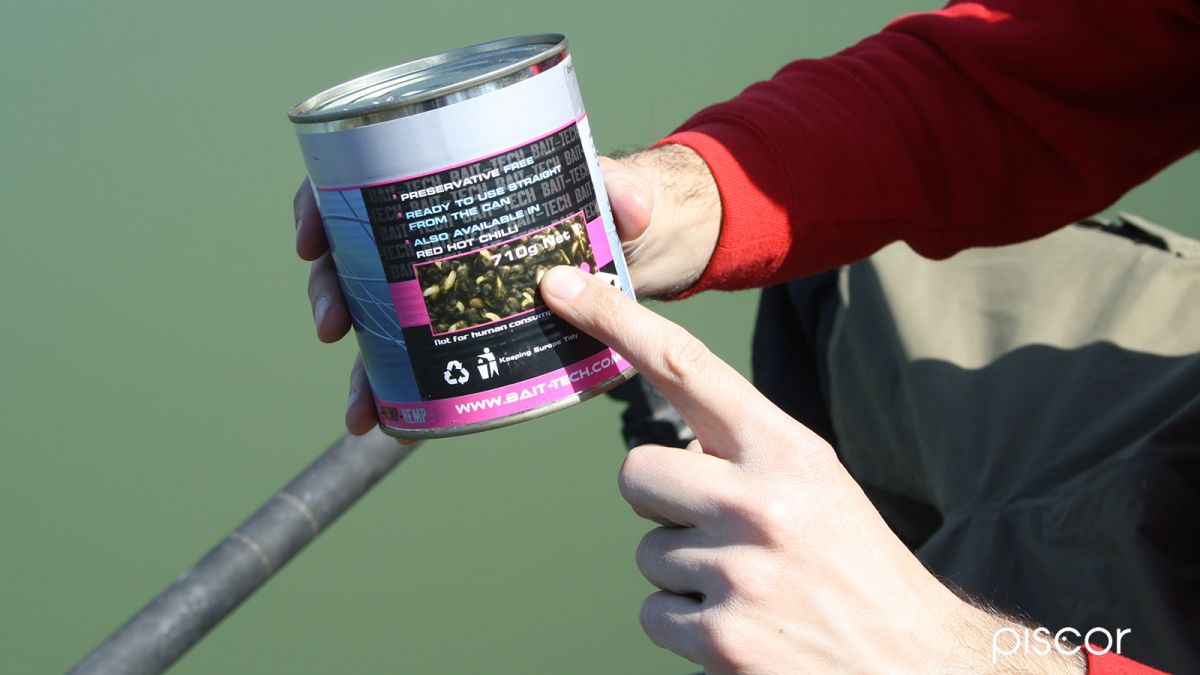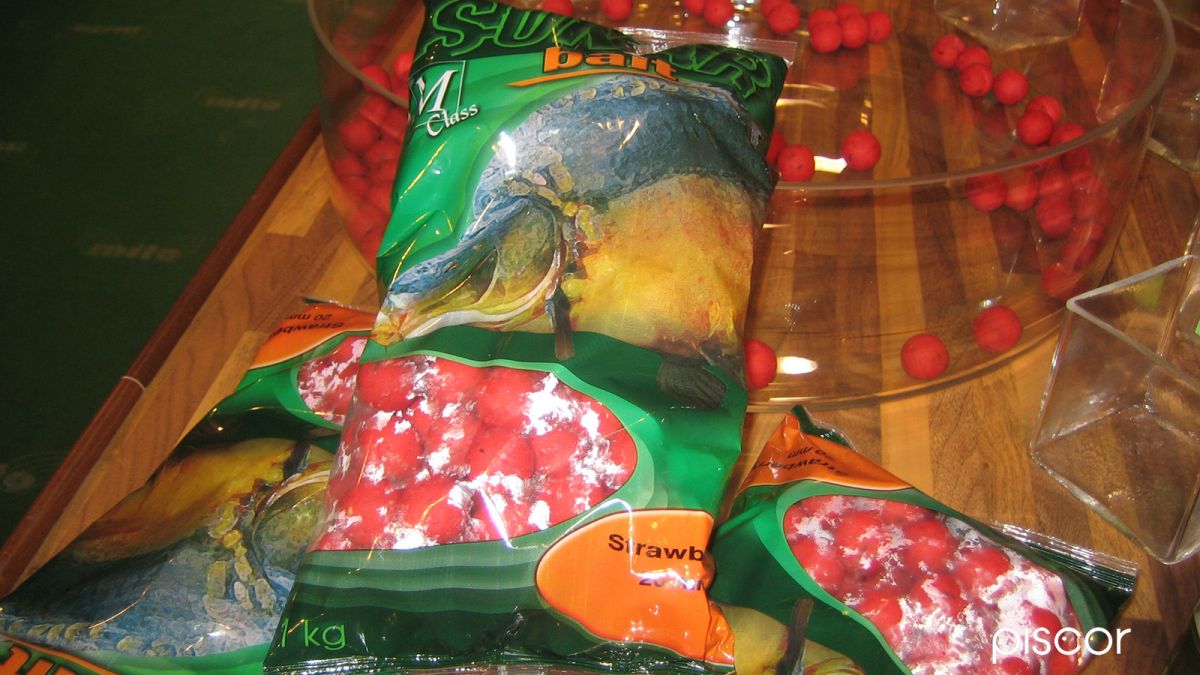In certain situations, a preservative that can extend the life of some of our baits may be useful.
The idea of using a liquid preservative to prolong the life of some of our baits or pastures, obtained from a mix of 100% natural ingredients, came to us with attention to the "food" waste that affects many fishermen at the end of a competition or a normal fishing session.
How many times do we have to knead several kilos of pasture and get to the end of the catch with still "a lot of stuff" not used in the bucket? The same can be said for corn and also for hemp.
All these foods, considered wet, undergo a rapid deterioration due to the humidity itself, light and heat, so that everything that advances must be thrown away because it is unusable in the next fishing session.
Going to peek into the accessories of our carpist friends, we learned the importance of using a small dose of natural preservative inside the dough for the legendary balls that, once cooked, serves to lengthen the life of these baits.
Our idea of trying this miraculous liquid on the wet baits we usually use was sudden, although followed by many doubts. In the first analysis we thought that the boilies underwent a cooking process that did not affect either the pasture or the typical grains of the coarse fishing.
Secondly, we also considered that boilies, precisely because they are cooked, contain a very low percentage of moisture that helps them not to deteriorate so easily.
First experiments
Despite doubts, the curiosity has taken over so much so that we have not resisted to make some tests both on the effect that the "preserve baits" had in contact with the pasture that with the grains. The easiest thing to try was to add several doses of preservative to the already wet and mixed pasture, ready to fish, hoping that it would be able to keep the acidity of the food constant for at least two or three days.
The first results were not very satisfactory, as well as those concerning the conservation of corn and hemp. Regardless of the first disappointments we wanted to continue to try different solutions, hoping to be able to find the panacea of all evils.
After several attempts we found the solution for the maintenance of the pasture and for the conservation of corn and hemp.
Preserve bait and pasture
If we pay attention to the smell of wet pasture, we can easily understand how delicate it is and how prone it is to rancidity. Going into more detail, just smell the dough immediately after moistened and then the same after seven/eight hours. After such a short time, especially during hot periods and if the pasture used is rich in fatty substances, you can clearly perceive a change in the emanated aroma.
This must make us understand how much the flours tend to become sour, resulting in less attractive and even harmful to fish. At this point, thanks to a small addition of preservative to the pasture, it is possible to extend the time of use, being able to bring home an advanced dose during fishing, managing to reuse it for the next day's session.
How to act
To make the bait preserve work properly, it is essential to use 7-8 milliliters of it for every kilogram of pasture, or rather for every liter of water that will be used later for wetting the flours.
First of all, you have to mix it with the water and then, thanks to a stove, boil the liquid. When the water cools down, it will be ready to wet the flour. This procedure forces us to "prepare" the water at least a few hours before going fishing or, even, the day before.
Boiling the liquid allows the water to sterilize, lengthening the time of acidification of the pasture, as well as bringing into action the preservative that, in the second time, will also act directly on the fats of the flours.
In spite of everything, however, it must be said that a wet pasture, even if protected by the preservative, never has a long life. In summer, it can last two or at most three days in excellent condition, provided that returned home from the catch is placed in a cool environment, even better if in the refrigerator and in a low and wide container that facilitates the breathing of the dough, without any lid to facilitate fermentation.
Logically you can take advantage of the pasture so treated if we have the opportunity to go fishing for two or three consecutive days, avoiding all the effort if after a Sunday dedicated to our sport we will be forced to spend a week to return.
Some fishermen usually keep their traditionally wet and advanced pasture, i.e. without preservatives, by bringing it home and freezing it. This system can be made even more effective if the bait preserve is used, avoiding freezing a mixture that, at the time of freezing, is already partly deteriorated due to the heat suffered during the entire day of fishing or during transport by car.
The importance of natural bases
Going to examine a little preserve bait must highlight its completely natural composition, this means fully compatible with the diet of any living being, without chemical additions that, in addition to hurting the fish, could disgust them and cause them to move away from the bait treated.
Moreover, the "preserve bait" guarantees a perfect preservation of the treated baits without altering their taste and aroma. All this is essential to make the most of the potential of each nutrient, but also the stimulation of taste and smell that our calls produce on the sensory system of fish.
Let's talk about grain
It is with the grains that the "preserve bait" offers the maximum yield and expresses the best advantages for the fishermen at a stroke. We have treated both hemp and corn and found a fabulous way to extend the life of the grains and save a lot of money.
In addition to all this we have increased the attractiveness of corn with some tricks that we will explain in the next article always dedicated to the "preserve bait" but, above all, to the processing of corn to enhance the aroma and flavor.
Independently of this, it is necessary to anticipate that these kinds of foods, if treated appropriately, unlike pasture, can remain unchanged for a very long time, being able to buy product packages even very abundant (such as large jars of hemp 700 grams and more that are difficult to fully use during a single fishing session). In this way it will be sufficient to divide the product into several parts, obtaining small portions to minimize waste and save the costs of each catch.

